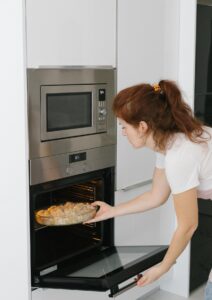
10 Practical Ways to Reduce Home Heating Costs and Save Money
As the chill of winter approaches, homeowners often find themselves dreading the spike in their heating bills. However, with some thoughtful planning and simple adjustments, it is possible to keep your home cozy and warm without breaking the bank. By adopting energy-efficient practices, you can significantly reduce your home heating costs. Here are ten practical ways to achieve just that:
- 1. Seal Air Leaks: Start by identifying and sealing any drafts around doors, windows, and other openings. Use weather stripping and caulk to seal gaps and cracks, preventing warm air from escaping and cold air from entering your home. Proper insulation is a key component in maintaining a comfortable indoor temperature while saving on heating expenses.
- 2. Upgrade to Programmable Thermostats: Programmable thermostats allow you to set different temperatures for various times of the day. By lowering the temperature when you are away or sleeping, you can conserve energy without sacrificing comfort. Some advanced models can even learn your preferences and adjust settings accordingly.
- 3. Embrace Layered Clothing: Instead of cranking up the heat, opt for layered clothing and cozy blankets to stay warm. Dressing appropriately for the season indoors will enable you to keep the thermostat at a lower setting, ultimately saving on heating costs.
- 4. Utilize Curtains and Drapes: Open curtains during the day to let sunlight in, providing natural warmth to your home. Close them at night to retain the heat. For added insulation, consider using thermal curtains or drapes to reduce heat loss through windows.
- 5. Maintain Your Heating System: Regular maintenance of your heating system is crucial for its efficiency. Schedule annual inspections to clean filters, check ducts, and ensure that everything is functioning optimally. A well-maintained system will use less energy to heat your home effectively.
- 6. Use Space Heaters Wisely: If you spend most of your time in one area of your home, consider using a space heater instead of heating the whole house. Space heaters are more energy-efficient for targeted heating, but remember to turn them off when leaving the room.
- 7. Insulate Your Attic: A significant amount of heat can escape through the roof. Adding insulation to your attic can prevent this heat loss and reduce the strain on your heating system. It’s a one-time investment that can lead to long-term savings.
- 8. Consider Zone Heating: If your home has different temperature needs in various rooms, consider implementing zone heating. This involves using separate thermostats to control the temperature in specific areas, allowing you to reduce heat in unused rooms.
- 9. Strategic Furniture Placement: Be mindful of furniture placement in your home. Avoid blocking heating vents or radiators with large pieces of furniture, as this obstructs the flow of warm air and forces your heating system to work harder.
- 10. Upgrade to Energy-Efficient Windows and Doors: If you’re willing to make a larger investment, consider upgrading to energy-efficient windows and doors. These are designed to reduce heat transfer, keeping the warm air in and the cold air out, resulting in lower heating costs over time.
In conclusion, reducing home heating costs doesn’t have to be complicated or expensive. With a few practical adjustments and mindful practices, you can make your home more energy-efficient, ensuring both comfort and savings during the colder months. Taking steps to seal air leaks, upgrading to programmable thermostats, and embracing layered clothing are simple yet effective ways to minimize heating expenses. Additionally, maintaining your heating system, using curtains and drapes strategically, and utilizing space heaters wisely can further contribute to significant savings.
For more substantial long-term benefits, consider insulating your attic, adopting zone heating, and upgrading to energy-efficient windows and doors. By incorporating these tips into your daily routine and home improvement plans, you can enjoy a warm, cozy home while keeping your heating costs under control.
Power saving tip
www.robertastewart.com


